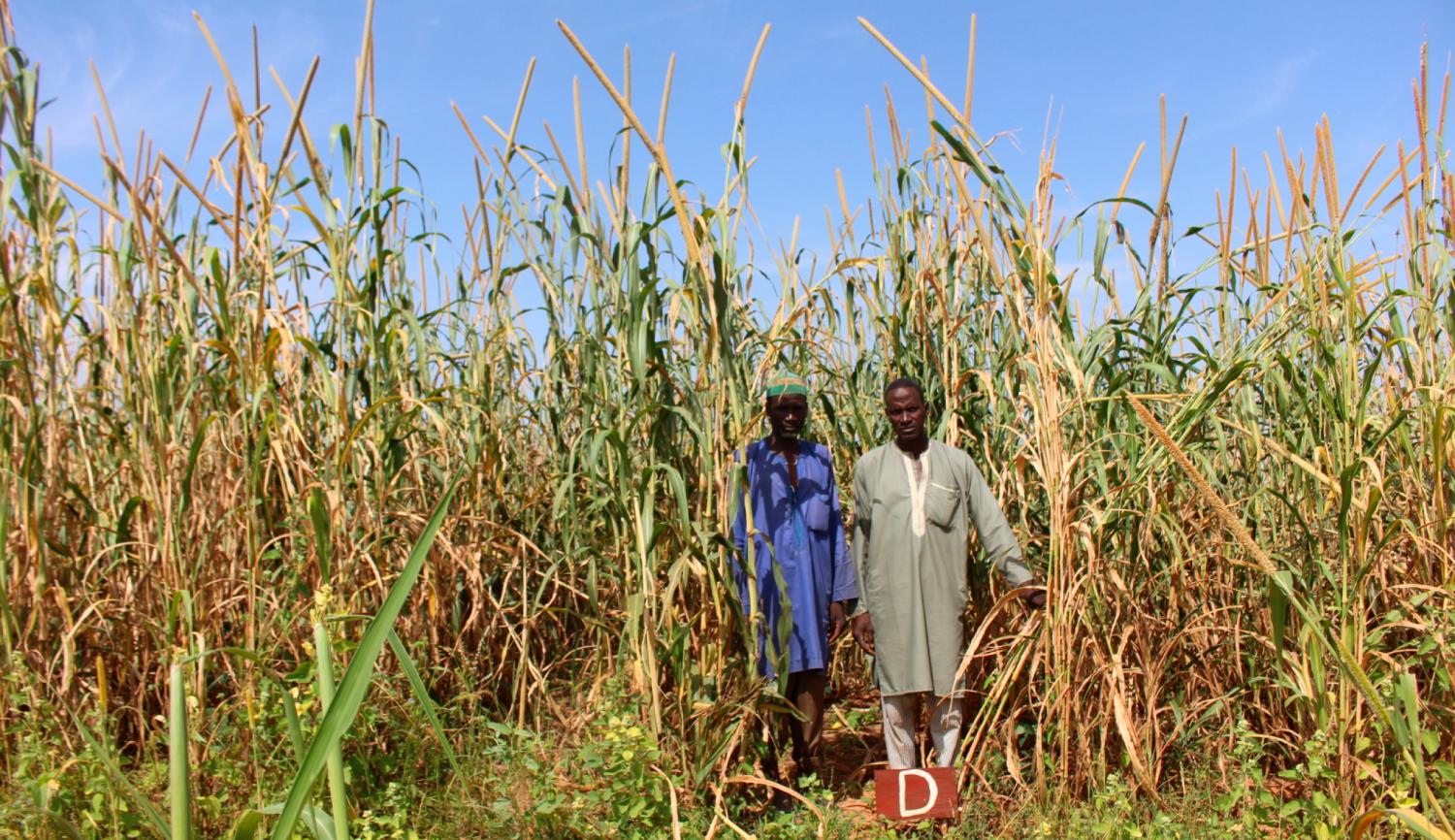
Research Program
Global Environmental Culture Program
Organic Material Circulation Project
- Related links
Building up organic material circulation system among urban and rural area: Toward the integration of local perception and scientific knowledge
Abstract
Based on the principle of returning to nature what is obtained from nature, we are creating organic material circulation system that contributes to land restoration and agricultural production improvement. We return urban organic waste to degraded land in sub- Saharan Africa and Asia including Japan. In the Sahel region of Republic of Niger, we have been working with local residents, municipalities, and central government for 20 years to green the degraded land using organic waste. We aim to contribute to the land restoration, the lives of local residents and prevention of ethnic conflicts among farmers and herders.
The world’s population is expected to reach 10 billion by 2050. The number of megacities -- cities with populations of 10 million or more -- is also increasing. Cities collect and consume a lot of food, energy, and other resources from their surroundings and around the world, but the wasted nutrients are not actively returned to farmland or the natural environment.
Under natural conditions, it can take as long as 1,000 years to form 1 cm of soil. In addition to economic disparity, food shortages and hunger, there is a serious problem of food loss in many parts of the world. There are fears that the production of food will not be able to keep up with demand due to the overuse of land and soil erosion caused by agriculture and pastoralism, which have led to land degradation. The food needs to be clean, and the organic waste and manure we throw away are abhorred as dirty. In Japan, the majority of organic waste is disposed of by incineration, with the ashes going to landfills instead of being used. The nutrients do not circulate in the ecosystem.
To achieve sustainability of our urban-based civilization in the future, we must accept the human characteristic of producing dirtiness from cleanliness. We need to understand the importance of the rebirth of life through such dirtiness, and to situate human existence in the earth system. This project hopes to promote a shift in thinking and values that seeks to build a material cycle between urban and rural areas.
Results
What we know so far
This research project aims to establish “RIHN compost (waterless dry compost)” technology for food waste disposal that utilizes natural process of fermentation, simple materials, and animal dung. Monitoring the temperature and moisture content of the materials determines the timing of the garbage input and allows for rapid garbage processing. This natural process involves the gut bacteria of thermostatic animals, and the basic temperature of compost material is between 35 and 37 degrees Celsius during the summer. The idea is to process food waste from hotel, using chicken and cattle dung from home improvement stores and nine species of animal dung from the Kyoto City Zoo, including Asian elephants, giraffes, hippopotamuses, zebras, tigers, chimpanzees, gorillas, and sloths. The project is also trying to establish fermentation techniques and recipes to promote the use of food waste discarded by hotel.
Noteworthy items
The first was to use “RIHN compost (waterless dry compost)” technology to make compost from kitchen waste from hotel and animal dung from the Kyoto City Zoo. We clarified the mechanism and established techniques and recipes by controlling temperature and moisture. The second point is networking with companies, the Kyoto City Zoo, the Kyoto Prefectural Board of Education, elementary schools, and farmers. Third, we introduced the concept, technology and recipe for “RIHN compost (waterless dry compost)” to elementary schools in Kyoto Prefecture, and provided classes so as to give opportunities to consider this possible countermeasure to the environmental problem.
 Photo 4: Elementary school class of composting and food education (Joint project with the Kyoto prefectural Board of Education)
Photo 4: Elementary school class of composting and food education (Joint project with the Kyoto prefectural Board of Education)
The lifestyles and the content of waste in Japan, five African countries are different. By studying the lifestyles, consumption and waste composition in each society, we will promote appropriate use of organic waste, improvement of farmland productivity, land restoration, and nature regeneration through the establishment of an urban-rural organic circulation system.
News
-
{{ data.disp_date }}
{{ data.content }}
Member
Project Leader
OYAMA Shuichi
Professor, RIHN/ Graduate School of Asian and African Area Studies/ Center for African Area Studies, Kyoto University
Sub Leader
SHIOYA Akiyo Kyoto University
USHIKU Haruya Hokkai Gakuen University
HARA Masaya Kobe University
Researchers at RIHN
NODA Kentaro (Researcher)
AOIKE Utako (Researcher)
NAKADE Michiko(Research Associate)
Main Members
NAKANO Tomoko (Chuo University)
SHIMADA Sawahiko (Tokyo University of Agriculture)
SAKAMOTO Takuto (University of Tokyo)
YABE Naoto (Tokyo Metropolitan University)
TSUCHIYA Yuichiro (Kyoto University of Education)
KOSAKA Yasuyuki (Kyoto University)
HARADA Hidenori (Kyoto University)
Evaluation by an external evaluation committee
Research schedule
| 2022 | 2023 | 2024 | 2025 | 2026 | 2027 | 2028 |
|---|---|---|---|---|---|---|
| FS | FS/PR | FR1 | FR2 | FR3 | FR4 | FR5 |


